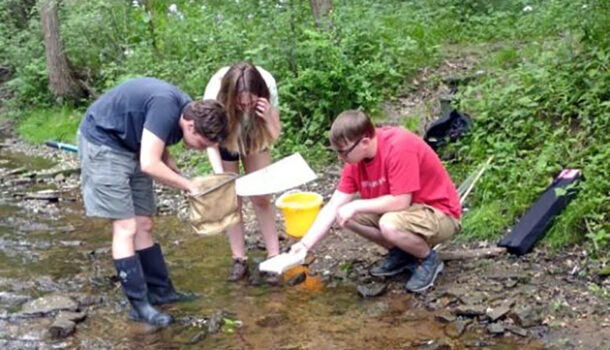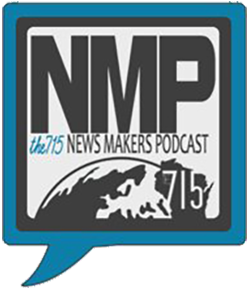ABOVE PHOTO: From left, Breeden, Wormet of UW-Eau Claire and Ryder Simington of UW-Stout collect macroinvertebrate samples this summer in Galloway Creek.
Near the banks of Lake Menomin and the lower Red Cedar River, University of Wisconsin-Stout is in the heart of one of western Wisconsin’s largest watersheds.
A new $358,940 research grant from the Freshwater Collaborative of Wisconsin focusing on water quality in the lakes, rivers and streams will extend a path for faculty and students to make a difference in the future of the ecosystem.
The Red Cedar Watershed Monitoring Project was one of three grants UW-Stout received Wednesday, Aug. 16, totaling $463,266. They were announced as part of $4.34 million for 22 projects at UW System schools.
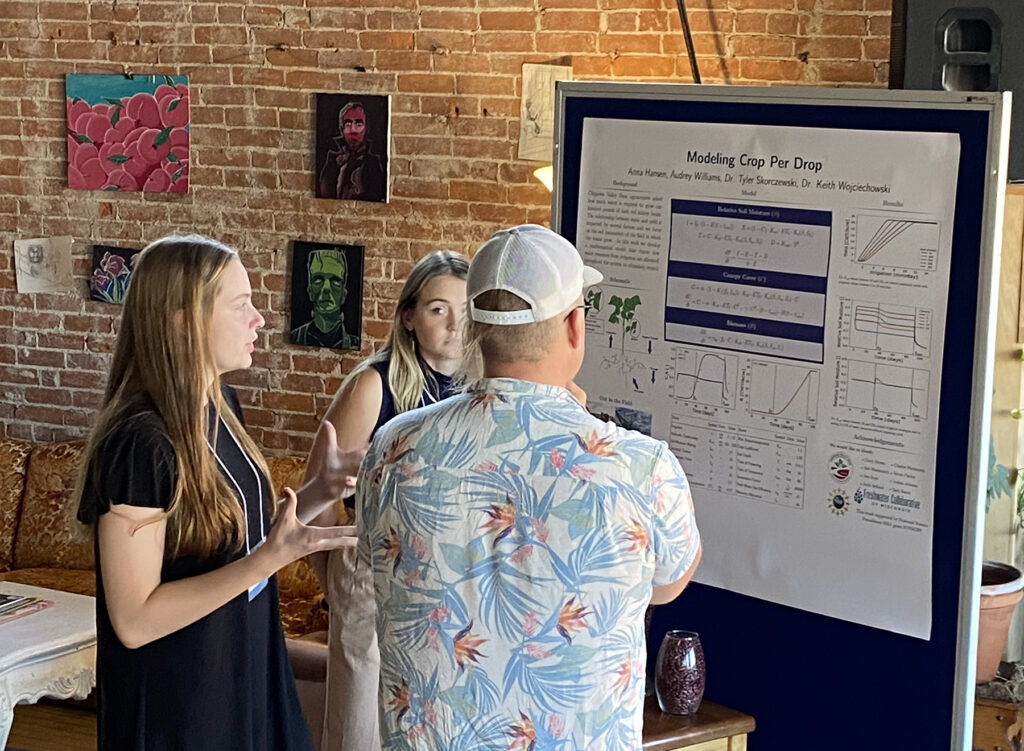
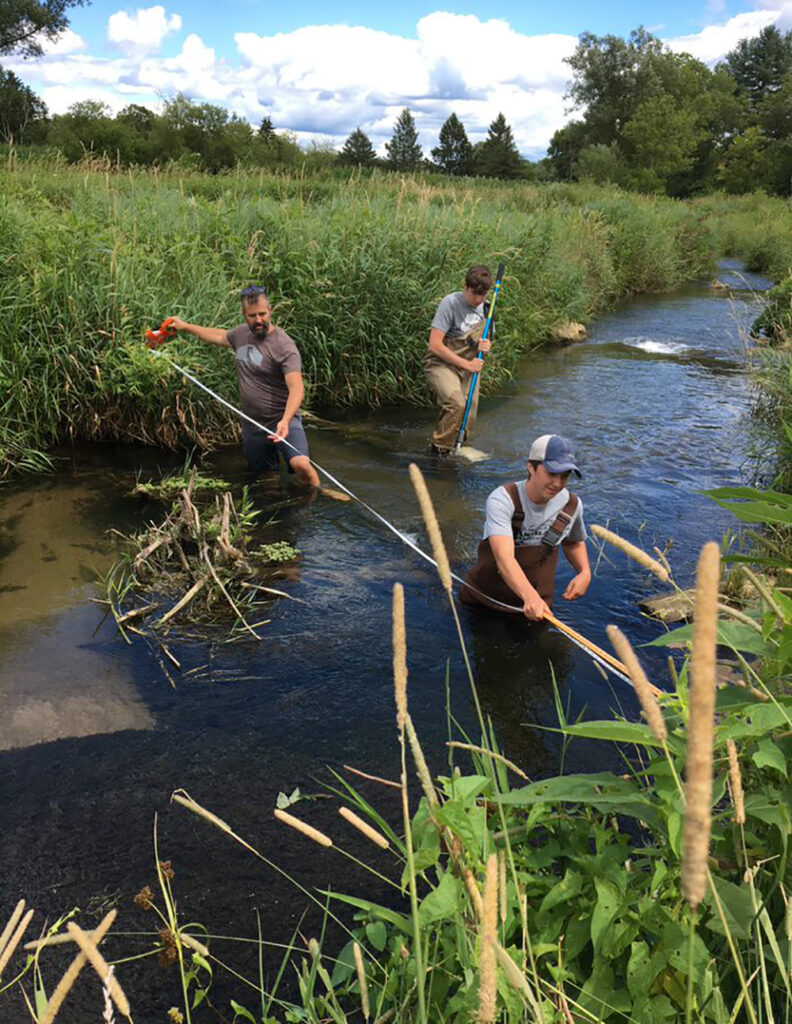
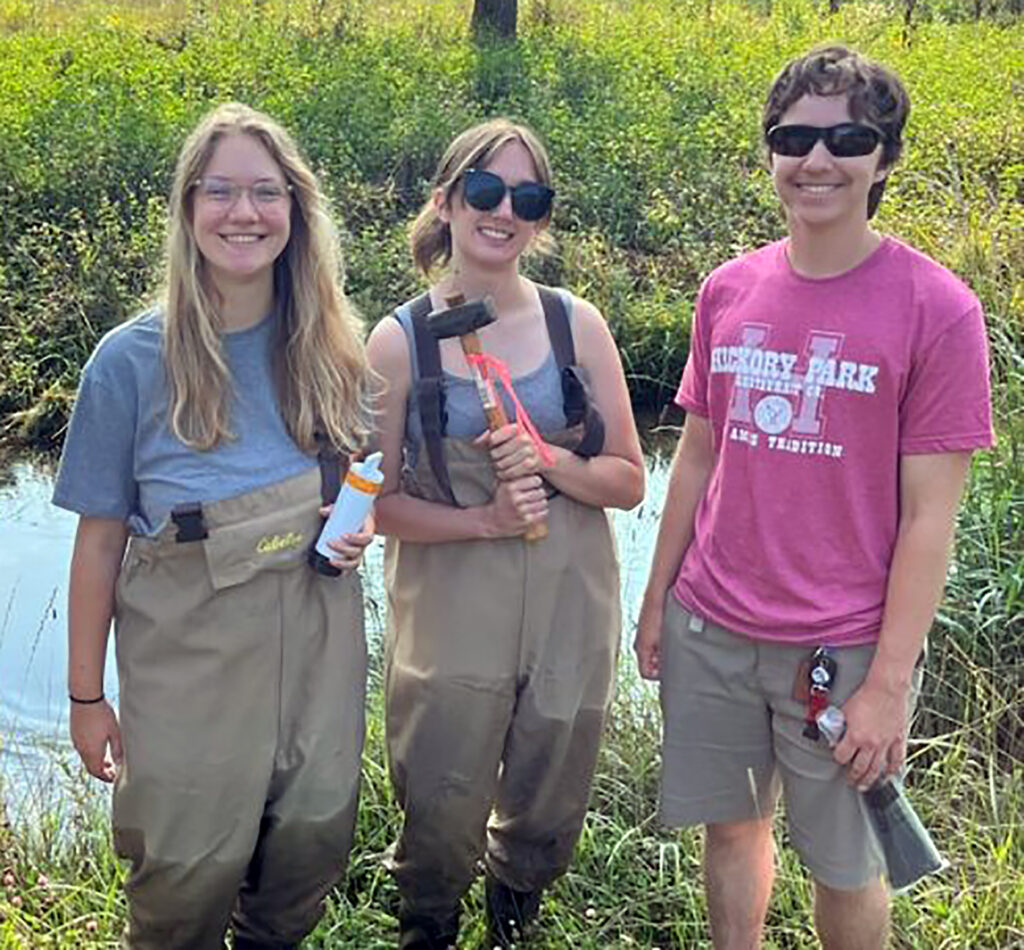
“The overarching goal is to understand the ecosystem processes occurring in the watershed so we can propose more effective management solutions,” said Associate Professor Keith Gilland, director of the watershed project and of UW-Stout’s environmental science program.
“This funding allows us to do applied research with students and focus on understanding and generating solutions to the biggest problems affecting our region,” he added.
The Red Cedar River watershed includes about 40,000 acres of open water and 4,900 miles of waterways in northwestern and west-central Wisconsin
UW-Stout also received $92,806 for a mathematics-based project to help dry bean growers manage water resources and increase yield; and $11,520 to host two freshwater science field courses, one for juniors and seniors in Wisconsin high schools and one for upper-level college students within the UW System.
In the past two years, UW-Stout now has been awarded $871,220 from FCW.
“The Freshwater Collaborative funds have been instrumental in supporting UW-Stout faculty in their research related to clean water, sustainability and restoration,” said Anne Hoeltke, director of UW-Stout’s Office of Research and Sponsored Programs. “In turn, their research, which has been highly and graciously supported by the state, will affect all of us in understanding the importance of our environment and the importance of maintaining it.”
Faculty-led applied research, which directly solves known problems, is one aspect of the experiential learning required in all UW-Stout undergraduate and graduate programs and part of the university’s polytechnic advantage.


